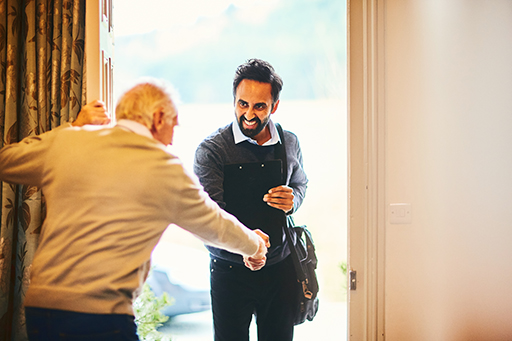3 Creating rapport
Rapport describes a quality of relationship where communication is effective and where there is a high level of understanding of each other’s feelings among the various individuals in communication. Empathy explains the capacity of someone to understand how another person is feeling from within the other person’s frame of reference. That is, rather like the notion of being able to ‘stand in their shoes’.
The capacity to build effective rapport with service users, colleagues, and with a wide range of other people, is a core social work skill and requirement. It is likely that it is easier for anyone to quickly build rapport with someone who is like them, who may share the same interests, and is motivated to build reciprocal rapport in return. Many encounters in social work, however, do not begin with these advantages, and it is part of the professional task to promote and facilitate effective communication. Sometimes this will involve using naturally acquired personal skills and tendencies, but also frequently, it will require the deployment of communication skills for rapport-building that have been consciously identified, learned, and practised.
The ‘Skills You Need’ organisation (2019) note the following elements as important components in building rapport:
- Look at and listen to the other person.
- When listening, nod and make encouraging sounds.
- Try to ask the other person open-questions (those that don’t have just a yes or no answer).
- Avoid contentious and challenging topics of conversation when building rapport.
- Use feedback to reflect and clarify with the person what you think they have said.
- Talk about things that refer back to what the other person has said.
- Build on the other person’s ideas.
- Where possible, show empathy.
- Be non-judgemental, not expressing pre-conceived ideas based on stereotypes.
- Admit when you don’t know the answer.
- If you disagree with the person, give the reason first, then say you disagree.
- Offer compliments, avoid criticism and be polite.

